Civil Liberties, Guantanamo, Habeas Corpus, Human Rights, Truth to Power
Podcast: Play in new window | Download
Updates:
——-
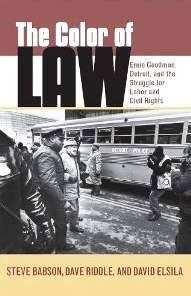
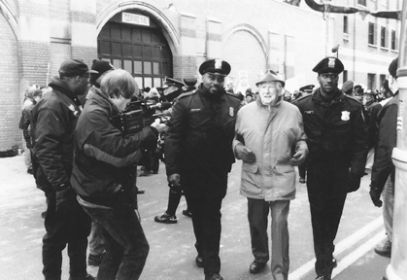
The Color of Law: Ernie Goodman, Detroit, and the Struggle for Labor and Civil Rights
The Color of Law recreates the compelling story of Ernie Goodman, one of the nation’s preeminent defense attorneys for workers and the militant poor. Author’s Steve Babson, Dave Riddle and David Elsila tell the story from the beginning, starting at Goodman’s early years as a corporate lawyer to his conversion to labor law during the Great Depression. From Detroit to Mississippi, Goodman saw police and other officials giving the “color of law” to actions that stifled freedom of speech and nullified the rights of workers and minorities. The Color of Law demonstrates that the abuse of power is non-partisan and that individuals who oppose injustice can change the course of events. Published by Wayne State University Press.
Bill Goodman:
- The book goes beyond my Dad as just an individual person who led a wonderful life and talks about the experience of going through the 20s, the 30s, the 40s, the 50s and 60s and even into the 70s.
- His awakening as a political person, came about out of the formation of the labor movement in the United States.
- He was one of the key people that provided legal counseling to the UAW.
- The sit down strike in Flint, Michigan: Governor Frank Murphy refused to send in the National Guard troops.
- Literally taking power and grabbing these factories from huge corporations was enormously important and symbolic. Ernie Goodman and others ended up representing UAW during McCarthy period.
- George Crockett was one of the most courageous people I’ve ever known in my life. He would not bend.
- My Dad got one of those Attica grand jury cases.
- Colman Young was highlighted in this period. Our law firm took the lead in the National Lawyers Guild saying this has to be the priority of the guild to represent the civil rights movement.
- Ernie Goodman grew up in the Jewish ghetto in Detroit
———–
Steve Babson:
- When Ernie Goodman died in 1997, his wife Frieda wanted some way of chronicling his life. She contacted Dave Elsila and he contacted Dave Riddle, and began writing the book. Dave Riddle became ill. We saw what a wonderful start he made to the book so, we picked it up and I became the lead writer in 2005 and 2006.
- Ernie was not unlike millions in the US that confronted the collapse of capitalism.
- They were collecting the cadavers off the streets every morning (in Detroit, during Depression)
- He was a repo-man, repossessing furniture, which brought him face to face with the unemployed councils and some of the early organizing in response to the Depression.
- He finally has a conversion crisis, where he finds his way to the other side of barricades, where he joins those contesting the outcomes of the Great Depression. It’s the Congress of Industrial Organizations, the UAW and this upsurge of worker mobilization on the job on behalf of industrial unions to turnback the Great Depression that leads to the black and white unity in the workplace.
- The Civil Rights Federation was supported by these new unions. It was the Civil Rights Federation that not only questioned segregation in neighborhoods and on the job, but the role of these vigilante groups. (The Black Legion) that were trying to roll back the New Deal and the CIO.
- The Lawyers Guild represented a progressive alternative and on that basis quickly grew in the late 30s to about 5000 members. 90 percent of the Guild was driven from its ranks from this concerted and fabricated web of lies, typical of the McCarthy era.
- Ernie Goodman takes the Guild to the South, first Virginia, then Mississippi.
Guest – Steve Babson, one of the 3 authors, Steve is a labor educator and union activist living in Detroit for the last 32 years with his wife, Nancy Brigham. He received his doctorate in U.S. History in 1989 from Wayne State University, where he also worked as an instructor in the Labor Studies Center from 1985 to 2006. Steve has published six books, including Working Detroit: The Making of a Union Town and Lean Work: Empowerment and Exploitation in the Global Auto Industry.
Guest – Bill Goodman, former legal director for the Center for Constitutional Rights has been an extraordinary public interest lawyer for over 30 years, and has served as counsel on issues including post-Katrina social justice, public housing, voting rights, the death penalty, living wage, civil liberties, educational reform, constitutional rights, human rights work in Haiti, and civil disobedience.
——–
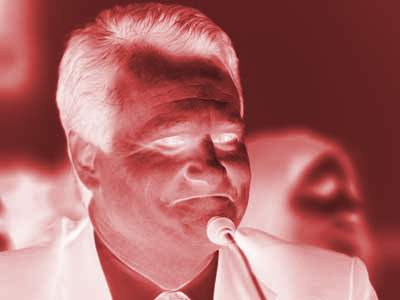
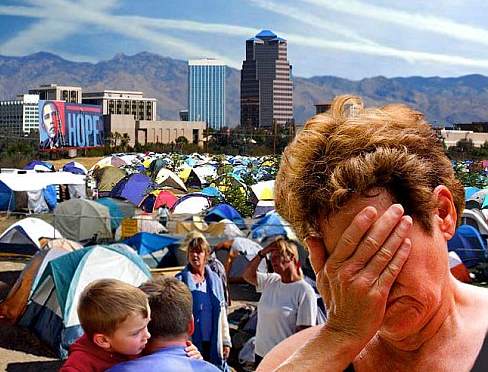
Foreclosure Scandal: Last Stage of Mortgage Scams
Big banks have resumed the foreclosure process in 23 judicial states after a temporary suspension. Judicial states require a judge and court hearing for foreclosure proceedings, not so, for the remaining 27 non judicial states. Faulty databases that track mortgage foreclosures electronically have made big mistakes amid the high volume of mortgage defaults. Meanwhile, Bank of America started to file new paperwork for 102,000 foreclosures. Consumer advocates and lawyers for homeowners doubt Bank of America completed an accurate review of the paperwork. Ira Rheingold, executive director of the National Association of Consumer Advocates, expressed his skepticism to one media source, “These are lawyers. These are banks going to court and committing fraud,” he said. “For them to say this is a minor technical problem is mind-boggling.”
This is part 2 of the mortgage crisis. The same banks the public bailed out stand to make hundreds of billions more on these foreclosures of homes.
Ira Rheingold:
- We have a broken mortgage system. The same system that created all those terrible mortgages, that led people into default and losing their homes also created a mortgaging servicing that’s completely broken.
- Anything that would stop them from moving quickly they avoided, they figured they weren’t going to get caught.
- You have GMAC, Bank of America, Wells Fargo, JP Morgan Chase, Citigroup.
- As a lawyer I’m offended by the law firms who are involved and really are knowingly committing fraud.
- These affidavits that they were putting before the court, the person signing them, said I have knowledge we are proper owner of the mortgage. I have knowledge this is the amount that’s owed.
- That person that was signing that affidavit was signing 500 that same day. They’re not going to suddenly have a staff to track down the original documents saying they have proper ownership.
- We’ve seen time and again those industries, those banks add fees they’re not allowed to charge, mis-ordering payments like we’ve seen in the credit card industry.
- The bottom line is what does this demonstrate? It demonstrates the banks can’t be trusted.
- What the foreclosure crisis has done is devastate communities across this country.
- The way we rebuild our economy is allowing homeowners to actually capable of affording thier house and stay in their homes. We’re talking about 3 million foreclosures across the country.
- FHA is a mortgage that the federal government insures.
- http://www.foreclosurelegalassistance.org. You need to clean this mess up.
Guest – Ira Rheingold, executive director of the National Association of Consumer Advocates. (NACA), an organization dedicated to protecting consumers from unfair and deceptive business practices. At NACA, Mr. Rheingold has testified before both Houses of Congress on various mortgage lending and consumer finance issues, offered commentary before federal agencies charged with regulating financial service industries and protecting consumers, and helped draft amicus briefs on issues of great concern to consumers before the nation’s highest courts
———————————
Afghanistan War, Civil Liberties, Criminalizing Dissent, Habeas Corpus, Human Rights, Surveillance, Targeting Muslims, Torture, Truth to Power
Podcast: Play in new window | Download
Updates:
——

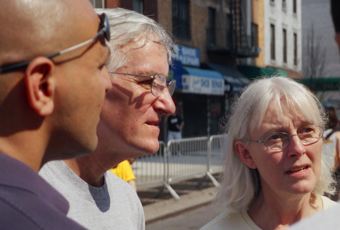
Rachel Corrie Lawsuit In Israel
Rachel Corrie, an American student activist and human rights defender from Olympia, Washington, was crushed to death on March 16, 2003, by a Caterpillar D9R bulldozer while nonviolently protesting Palestinian home demolitions with fellow members of the International Solidarity Movement.
The first phase of the trail began in March 2010, when the Corrie family presented its witnesses, including several of Rachel’s colleagues from ISM who witnessed her killing. During the second phase of the trial, which began last month, the government presented several witnesses, including the Israeli military police investigator who headed the investigation into Rachel’s death, and the bulldozer operators who struck and killed her.
The lawsuit charges that Rachel’s killing was intentional. It also charges that the Israeli government was negligent for allowing Israeli soldiers and military commanders to act recklessly using an armored military bulldozer without regard to the presence of unarmed, nonviolent civilians in Rafah, Gaza Strip. Lastly the lawsuit alleges that the Israeli military failed to take appropriate and necessary measures to protect Rachel’s life, in violation of obligations under Israeli and international law.
Katherine Gallagher:
- Rachel had been serving as a peace activist with the Palestinian International Solidarity Movement.
- The case is unfortunately taking quite a while, it was filed back in 2005, then the evidentiary phase opened in 2010. At that point the Corrie’s were able to call their own witnesses. They also called an expert who could speak about how to conduct a proper investigation.
- The investigator testimony revealed huge errors in the way the investigation was carried out.
- Errors include: The bulldozer was removed from the scene of the killing. There were investigators in the case who never went to the scene of the crime.
- On October 7, right before testimony, it was permitted that soldiers involved in the incident be allowed to testify behind a screen.
- This is an extraordinary step, the family if unable to see those soldiers who are able to provide some answers even through their body language as they testify.
- For the Corries who have waited 7 and a half years for some answers, that they won’t be able to assess the credibility by his body language is a significant blow.
- When you say the name Rachel Corrie in Israel, people know who she is.
- CCR Lawsuit: Caterpillar had aided and abetted war crimes and other serious violations of international law.
- It struck how Jerusalem has changed. There’s been a massive amount of construction in the old city and particularly around East Jerusalem.
Guest – Katherine Gallagher, Senior Staff Attorney at the Center for Constitutional Rights, where she focuses on holding individuals, including US and foreign government officials, and corporations, including private military contractors, accountable for serious human rights violations. Among the cases she is working on are Arar v. Ashcroft, Matar v. Dichter, Saleh v. Titan and Estate of Atban v. Blackwater.
——
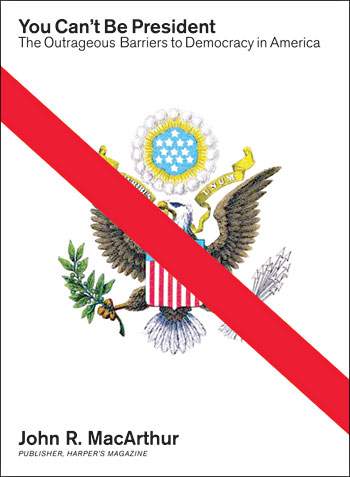
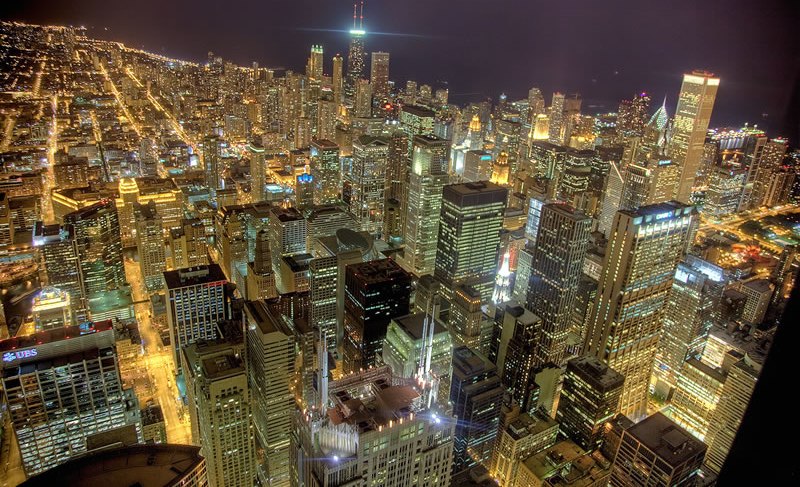
You Can’t Be President: The Outrageous Barriers to Democracy in America
John Rick MacArthur is the president and publisher of Harper’s Magazine. He’s an award winning journalist and author. We want to talk with Rick about his third book titled You Can’t Be President: The Outrageous Barriers to Democracy in America and explore the topic of who finances the Republican and Democratic parties. A recent book review states, that it (quote) advances a familiar argument: that moneyed and privileged interests, rather than the needs and opinions of ordinary citizens, dominate contemporary American politics. MacArthur, begins by lamenting the lack of basic comprehension of the Constitution and American government on the part of the political and media elite. The book also criticizes Barack Obama and Hillary Clinton.
Rick MacArthur:
- There are two balance sheets, there’s one with regard to the people of the United States and the other which I talk about in You Can’t Be President is the internal party structure.
- The balance sheet for the people is bad, we are now enmeshed even more in a self destructive war if possible than Iraq was. Afghanistan is a disaster and you don’t have to ask a peacenik.
- You have a fake health care reform which really reinforced the power of the insurance companies.
- You have a very feeble reform of Wall Street. You have a continuation of anti-labor,orthodox “free trade” policies. You have the continued corruption of the lobby system in Washington.
- Coming from Chicago, if Obama attacked the lobby system it would be like committing political suicide.
- Obama broke every record in corporate fund raising, PAC fund raising. He raised money from Jack Abramoff’s old law firm.
- In sum, he’s (Obama) has been an anti-reformer, anti-progressive.
- On civil liberties, if you criticize Bush it’s great, if you criticize Obama, you can hear a pin drop.
- I met someone who did a tour of the new prison in Baghram, Afghanistan. He said it was terrifying.
- You have to understand that the Chicago machine, is the most powerful local machine in the country.
- Almost every important job in the county is held by a Democrat. The mayor of Chicago is very much like the dictator of Chicago. Obama came out of the most intolerant, the most monopolistic, one sided political machine in the country.
- Murdoch’s bundled campaign contributions were 50/50 between Clinton and Obama.
- I don’t see why we can’t organize around an opposition candidate, raise some money.
- I think what you’re seeing is disillusionment among the party leadership with Obama, because he hasn’t delivered the goods.
- They wanted Obama to deliver the 2016 Olympics to Chicago.
- Obama is a tremendously prudent and cautious politician, there’s no audacity at all.
Guest – John Rick MacArthur, an American journalist and author of books about US politics. He is the president of Harper’s Magazine. MacArthur has been a reporter for The Wall Street Journal (1977), the Washington Star (1978), The Bergen Record (1978–1979), Chicago Sun-Times (1979–1982), and an assistant foreign editor at United Press International (1982).
Civil Liberties, Criminalizing Dissent, Extraordinary Rendition, FBI Intrusion, Habeas Corpus, Human Rights, Military Tribunal, Supreme Court, Surveillance, Targeting Muslims, Torture
Podcast: Play in new window | Download
Updates:
- Anwar Al-Aulaqi Case – Drones Targeting US Citizens – Obama Wants To Dismiss CCR/ACLU Case
- CCR Guantanamo So Called Suicide Cases
- Supreme Court Will Not Review Case On Feds Wiretapping Guantanamo Lawyers
- Bombing of the USS Cole – Could Prosecutors Use The Fruit From the Poisonous Tree?
—-
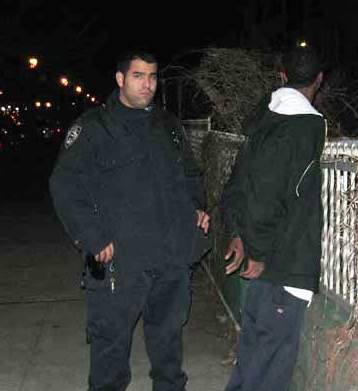
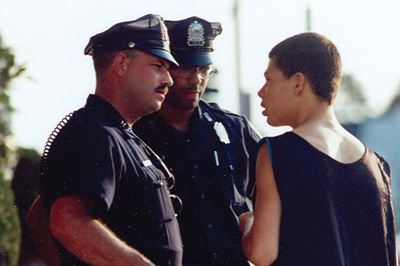
NYC NLG Street Law and Racial Profiling Program
Today we’re joined by Paula Segal and Gabriela Lopez with the New York City Lawyers Guild Street Law Clinic Program. The project sends groups of attorneys to conduct “Street Law” workshops with a range of students in high school. We’re also joined by students from the Aarturo A. Schomburg Satellite Academy High School who were part of the street law classes.
Street Law Students:
- In my neighborhood it’s really common for the Police to bother you for no reason. I don’t think they had the right to go into my pockets unless they had reasonable suspicion. This happens at least 3 times a week.
- One time they took me into the precinct, took my picture, ran my fingerprints.
- I was getting off the train and these two big police men were getting off the train and they stopped me. They said we have her on the walkie-talkie. This women said take off your sneakers. She kept asking, where is it? Where is it? That’s when she started to get physical and she lifted up my shirt. “If you don’t f-in’ tell me where it’s at, I’m going to strip search you. It happened on Elder Avenue, next to the 6 train.
- They say no, we’re not going to touch you, then he throws me on the car.
- You guys are unfolding my socks right now, and I don’t like this. There’s a certain way that I fold my socks.
- After they find nothing, they say you should change your attitude. I said, you should change your attitude.
- A lot of cops judge character, when I see cops, you have to give them an expression. Hey look I’m out here, I’m not tryin to get in that car.
- I’m thinking about the cops catching the real villans. If you’re really guilty you’re going to get hassled, if you’re not guilty,then you can be free. The advice I get from the street law project is not consenting to the search.
- From my knowledge, the cops need a certain amount of arrests at the end of the month, so they’ll pick on anybody. They curse a lot. Undercover cops, they’ll probably have on a hoodie, try to fit in with everybody else, it just don’t work.
- Law Student Paula Segal: We focus on giving people tools to walk away, to avoid arrest.
- Law Student, Street Law Coordinator Gabriella Lopez: Last year we went to more than sixty different sites. Sixty to Seventy different trainings that occured last year.
- Email the Street Law Team – streetlawteam@gmail.com
Guests – Paula Segal and Gabriela Lopez with the New York City Lawyers Guild Street Law Clinic Program. Aarturo A. Schomburg Satellite Academy High School Students: Charisma Whaley / Joseph Campbell / Kiara Avila / Stephanie Colon / Jonathan Jeffries.
—-
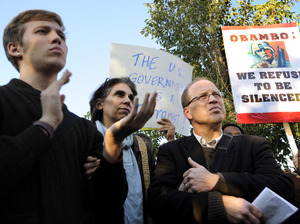

Grand Juries Historically and the Minneapolis / Chicago FBI Raids
A total of 12 people were served with subpoenas during last months FBI raids in Minneapolis and Chicago. The FBI targeted anti-war peace activists and key organizers of demonstrations and marches who have been asked to appear before a grand jury. What is a grand jury? Historically, a grand jury was supposed to be citizens coming together to determine if charges should be filed criminally against someone. Today, it’s very different. It’s mostly a rubber stamp for what the prosecutors want. If you refuse to testify at a grand jury, you can be taken to a judge to answer questions. If you refuse to answer those questions you could be put in jail.
Margaret Ratner-Kunstler:
- If you were subpoenaed before a grand jury in 1968 and you asserted your grand jury right, then that really was the end of your participation in the grand jury.
- You asserted immunity and if you we’re given immunity, you couldn’t be indicted.
- Immunity: Nothing you say could be used against you, but anything you testified about could not be the subject of a criminal indictment against you. Your words could not be held against you, or the fruits of those words. But it’s so easy to get around that, by a prosecutor saying, this didn’t come from this.
- If you then refused to testify given this minor immunity, you could be subject to imprisonment.
- If you refuse to testify you’re brought back before the judge and the judge then holds you in “civil contempt.”
- The grand jury is usually about 18 months. The grand jury in Chicago is a special grand jury which means it’s twice as long.
- That’s important because if you’re held in civil contempt, the keys to the jail are in your pocket. You’re in jail for as long as you refuse to testify.
- If you say something you could wave your fifth amendment right by already saying something.
- The recent FBI raids represents the tremendous see-change we have in terms of the ability for people to actively oppose this government’s policy.
- In 1983, there were many groups in this country who were joining forces with progressive groups in Central America. You had the Committee in Solidarity With the People Of El Salvador.
- Each of the 11 individual persons subpeoned wrote letters to the Attorney General saying that they would assert their fifth amendment right and that they would not testify.
- If they can’t get you on a federal charge it’s often that they’re looking for a mistake you made in conversation, even an informal conversation with a federal official.
Guest – Magaret Ratner-Kunstler, an attorney in private practice. As education director at the Center for Constitutional Rights, she originated the Movement Support Network and authored “If an Agent Knocks.” Kunstler is the President of the William Moses Kunstler Fund for Racial Justice, a foundation established in 1995 in the memory of her late husband to combat racism in the criminal justice system.
———————
Civil Liberties, Criminalizing Dissent, Habeas Corpus, Human Rights, Military Tribunal, Political Prisoner, Prison Industry, Supreme Court, Targeting Muslims, Torture, Truth to Power
Podcast: Play in new window | Download
Updates:
—
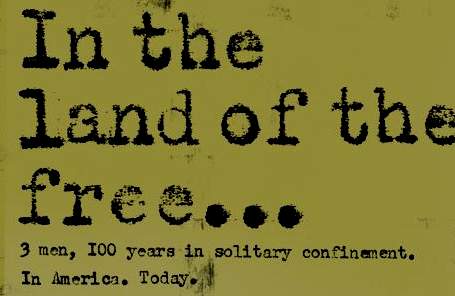
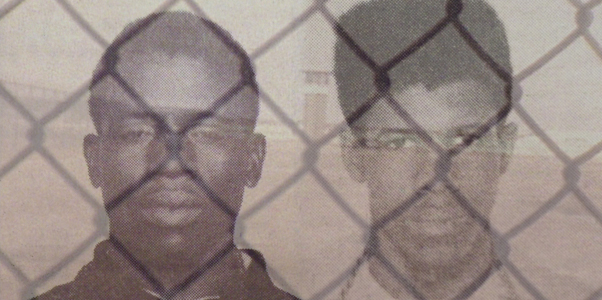
In the Land of the Free, a film by Vadim Jean
Director Vadim George joins us to discuss his recent documentary film “In the Land of the Free.” As many listeners may know, the Angola 3 are Robert King, Albert Woodfox and Herman Wallace. Each had arrived to the Louisiana State Penitentiary in the late 1960s. While in prison, and in contact with Black Panthers, the men helped build a prison chapter of the Black Panthers. They organized inmates to end systematic rape and violence and worked as jailhouse lawyers. The men have spent a combined century in solitary confinement in the Angola prison. Vadim’s powerful documentary explores the issues of accountability and examines the biases against the sentencing of African Americans compared to Whites and Latinos. The film is narrated by Samuel L. Jackson, and it’s noted toward the end, that there is a pending civil suit ‘Wilkerson, Wallace and Woodfox’ vs the State of Louisiana, ruled by the US Supreme Court and to go to trial based that their 30+ years in solitary confinement is “inhumane and unconstitutional”. This case could stop long-term solitary confinement in US prisons.
Vadim Jean:
- I was friends with Anita Roddick, she knew Robert King, and when she passed away in 2007, Robert King was one of the speakers at her memorial. They wouldn’t let me film in the prison.
- The Angola 3 came together in the New Orleans parrish prison in the 1970s.
- The criminals were put in with the Black Panthers and the Black Panthers educated the criminals.
- In the 1970s Angola was the bloodiest prison in America.
- Robert King was told why he was kept in solitary confinement after 25 years in CCR (solitary confinement)
- Because he was being investigated for the murder of Brent Miller, which happened when he wasn’t even in the prison. They’re incredible human beings. They’re strong men. They’re self educated, in prison.
- I think they have their side, the fact that they know they’re innocent, and that makes you strong, that’s made them incredibly strong. They refused to be beaten.
- Robert is free. His conviction was overturned in 2001. People have reacted strongly to the film.
- I’ve tended to make drama comedies. I made a completely mad film called Jiminy Glick in Lalawood with Martin Short.
- I made this film for Anita. (Anita Roddick) The Roddick Foundation.
Guest – Vadim Jean, began his career directing commercials for products such as Blockbuster Video, Woolworths, The Observer and Mercury 121 Mobile Phones. He then moved on to music videos for Elton John and Oasis before co-directing his first feature film, Leon the Pig Farmer (1992). For his work he won an Evening Standard British Film Award for Most Promising Newcomer, a Chaplin Award for Best First Feature at the Edinburgh International Film Festival.
——–
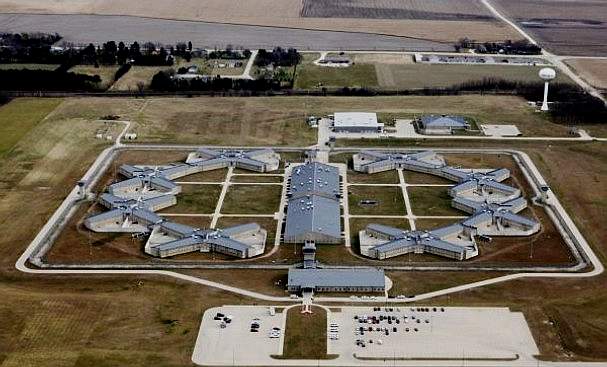
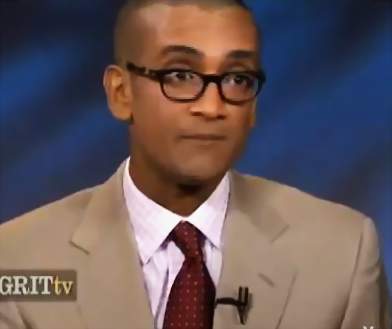
Law and Disorder Barack Obama Series – CCR Staff Attorney Shane Kadidal
We’re joined by Center for Constitutional Rights staff attorney Shane Kadidal to give us an overview on several critical topics we’ve been following over the years here on Law and Disorder. We look at what is happening in Guantanamo right now, the Obama policy of preventive detentions and the state of Habeas Corpus in the United States. In January of 2009 Barack Obama issued orders to close Guantanamo Bay prison. There was talk of transferring prisoners to a supermax prison in the United States. Military tribunals move forward for Guantanamo prisoners.
Shane Kadidal:
- What we won is the right to get into court and challenge the legality of your detention. CCR won that in 2008
- Obama gets into office and says he’s going to close Guantanamo Bay Prison in a year.
- Obama to set up expert agency to decide what to do with people in Guantanamo prison
- About 50 cases have gone forward and we (CCR) won 72 percent of the cases
- About 180 left in Guantanamo. Obama has improved physical conditions for detainees in Guantanamo, but they’re still stuck there. Nothing much has changed, we see stasis, there isn’t much political movement.
- About a month into the administration, the Obama Department of Justice says our position is the same as the Bush administrations on Bagram AFB prison
- We’re taking the same legal position about executive power as the previous administration – state’s secrets about rendition
- Six hundred people in Bagram right now. Bagram is an active war zone, can’t have courts interferring
- About 30 of the remaining 180 in Guantanamo will be charged. Most of the people brought there were innocent. The victim of profiling policies.
- General Stone says 400 of the 600 hundred in Bagram Prison have done nothing and should be released immediately. Task Force report on Guantanamo prisoners. 10 percent leaders of Al-Qaeda, 20 percent had a logistics role, others are low level soldiers. This is false.
- There are innocent people in Guantanamo, who have been there for 8 years.
- We still have a military commissions, an indefinite detention system. Lieberman proposing to strip citizenship from terrorism suspects so they can be interrogated without Miranda warnings.
- Moving Guantanamo Prison to Thomson Prison in Illinois.
- Obama as committed to removing checks on executive power
Guest – Shane Kadidal senior managing attorney of the Guantánamo Global Justice Initiative at the Center for Constitutional Rights in New York City. He is a graduate of the Yale Law School and a former law clerk to Judge Kermit Lipez of the United States Court of Appeals for the First Circuit.
Past shows with Shane Kadidal
CIA Sponsored Terror, Civil Liberties, Criminalizing Dissent, Habeas Corpus, Human Rights, Surveillance, Torture, Truth to Power
Podcast: Play in new window | Download
Updates:
—-
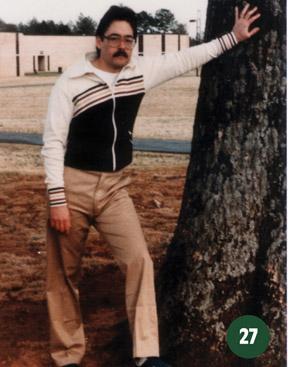

Puerto Rican Political Prisoner Released Today After 30 Years
Last week Puerto Rican community activist Carlos Alberto Torres was released from a federal prison in Pekin, Ill after serving 30 years as a political prisoner. Torres was convicted of seditious conspiracy – conspiring to use force against the lawful authority of the United States over Puerto Rico. Torres was punished for being a member of an armed clandestine organization called the FALN – Fuerzas Armadas de Liberación Nacional (English: “Armed Forces of National Liberation) which had claimed responsibility for bombings in Chicago that resulted in no deaths. He wasn’t accused of the bombings only of being a member of FALN.
In 1898 Puerto Rico was ceded to the US by Spain as war bounty in the treaty that ended the Spanish-American War. Still, the US has occupied it since. Torres was sentenced to 78 years in prison but used international law in his defense. Torres argued that the courts of the colonizing country may not criminalize captured anti-colonial combatants, but must turn them over to an impartial international tributnal to have their status adjudicated.
There was an outpouring of support to free Carlos. His attorney, National Lawyers Guild member Jan Susler of Chicago, notes, “Carlos is being released from prison due to the unflagging support of the Puerto Rican independence movement and others who work for human rights. The more than 10,000 letters of support from the U.S., Puerto Rico, Mexico and other countries sent a strong message to the Parole Commission.”
Jan Susler:
- Carlos got a disproportionate sentence, a punishment for who he was politically. He did 30 years, standing tall and maintaining his political integrity.
- People stop him on the street, and embrace him.
- The bombing in which he was accused of was only property damage. If he had killed or injured someone and convicted as a social prisoner, he would gotten a less sentence and served far less time.
- He was always treated more harshly than the other prisoners.
- Right after 9/11, the US rounded up political prisoners and put them in the hole for months.
- You’re always watched, you’re always monitored. Every prisoner has access to email, Carlos did not.
Carlos Torres:
Guest – Attorney Jan Susler joined People’s Law Office in 1982 after a six year stint as Clinical Law Professor at Prison Legal Aid, the legal clinic at Southern Illinois University’s School of Law. Her long history of work on behalf of political prisoners and prisoners’ rights includes litigation, advocacy and educational work around USP Marion and the Women’s High Security Unit at Lexington, KY. Her practice at PLO focuses on police misconduct civil rights litigation, which has lately included wrongful conviction litigation on behalf of people exonerated after serving many years in prison, innocent. Her work with the Puerto Rican Independence Movement and with progressive movements challenging U.S. foreign and domestic policies has been a constant throughout her 30 years as a lawyer.
Guest – Carlos Alberto Torres member of Puerto Rico’s independence movement and the longest-serving Puerto Rican political prisoner. He was convicted and sentenced to 78 years in a U.S. federal prison for seditious conspiracy – conspiring to use force against the lawful authority of the United States over Puerto Rico. He served 30 years, being released on July 26, 2010.
—-
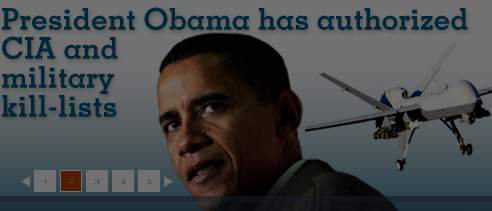
CCR and ACLU Sue Obama Over Limits On Lawyers Seeking To Represent Suspect on Administration “Kill List”
The Center for Constutional Rights and the ACLU have filed a lawsuit challenging the Obama administration’s authority to use the military and the CIA to kill the radical Muslim cleric Anwar al-Awlaki. He’s an American citizen, accused of terrorism but hasn’t recieved a trial. He is believed to be hiding in Yemen. Because it would be against the law to challenge the government’s attempt to kill al-Awlaki, the lawsuit was filed against the Treasury department, that challenged a regulation that would require the Center and the ACLU to obtain its permission in order to provide uncompensated legal services for Mr al-Awlaki.
Vince Warren, the executive director of the Center for Constitutional Rights, argued that international law did not permit a government to kill people far from combat zones, and in the case of a US citizen, Vince said that such a policy also violates the Constitution’s Fifth Amendment — and is a dangerous precedent.
CCR Attorney Pardiss Kebriaei:
- The case that we filed last week was a challenge to a regulatory scheme under the Department of Treasury and OFAC which prohibits transactions with anyone designated as a terrorist by the government. That includes pro-bono legal services.
- Al-Awlaki is the subject of an assassination order by the president, ordering and authorizing the CIA and Special Forces to target and kill him.
- OFAC powers go back to the 1970s IEEPA, the International Emergency Economic Powers Act.
- All we have against this guy are allegations.
- The CIA, which is one of the agencies that carries out these killings has primarily used drones. We think that drones would be the primary way that this killing would be carried out.
Guest – CCR staff attorney Pardiss Kebriaei joined the Guantánamo Global Justice Initiative at the Center for Constitutional Rights (CCR) in July 2007. She provides direct representation to several of CCR’s clients at Guantánamo and helps coordinate CCR’s network of hundreds of pro bono counsel representing other prisoners. She also focuses on using international human rights mechanisms to bring international pressure to bear on the U.S. government and hold other governments accountable for their role in the violations at Guantánamo.
———-
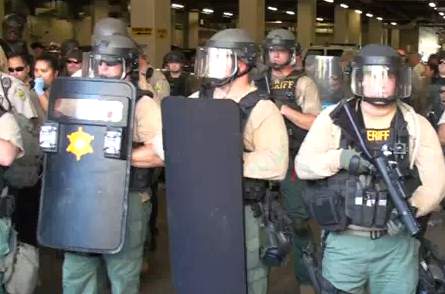
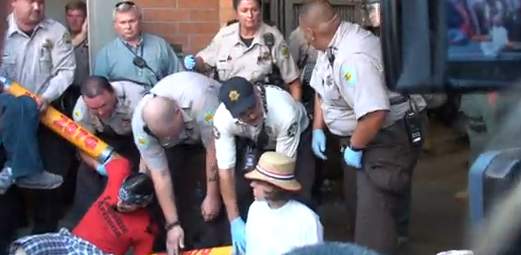
CCR Attorney Legal Observer Arrested in Arizona Immigration Protests
Legal observers from the National Lawyers Guild and the Center for Constitutional Rights were arrested last week during mass demonstrations of protesters who opposed Federal law 287G, Arizona law SB 1070. What happened? CCR Legal Director Bill Quigley told the media, Arizona is starting to act like Mississippi in the civil rights days. Among those arrested were National Lawyers Guild officer Roxana Orrell and CCR staff attorney Sunita Patel.
Sunita Patel:
- It was my first time in Maricopa County. Sheriff Joe Arpaio is known for branding the most horrible incarnation of 287G and ICE police collaboration.
- 287G is the statute by which this program is authorized by Congress. He also has what’s called a secure communities program which allows for the identification of anyone who is a non-citizen through a finger printing system. 287G allows for local agencies to implement immigration law through a memorandum of understanding with the federal government.
- At the same time he implements what’s called “crime suppression sweeps” Where he takes his units and regular citizens to sweep through neighborhoods.
- I spent the night in jail, I hadn’t planned on it. It was really an honor to be in solidarity with the rest of the protesters. I was charged with obstruction of a highway and public thoroughfare and failure to obey a police officer. People in Arizona call it a war zone when it comes to immigration enforcement.
- Arizona has also become the site for a spark of incredible activism and the growth of an incredible human rights movement.
Guest – CCR Staff Attorney Sunita Patel with racial profiling, immigrant rights and other human rights litigation. Prior to her position at CCR, she held a Soros Justice Fellowship at The Legal Aid Society, Immigration Law Unit in New York where she represented immigrant detainees in removal proceedings and worked with criminal justice and human rights groups to create independent community oversight for detention operations through public accountability boards. Sunita is a former law clerk for the Honorable Judge Ivan L. R. Lemelle in the Eastern District of Louisiana.
————————————————————————————————
Civil Liberties, Gaza, Habeas Corpus, Human Rights, Targeting Muslims, Truth to Power
Podcast: Play in new window | Download
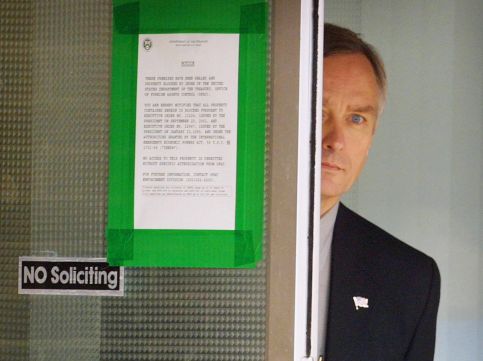
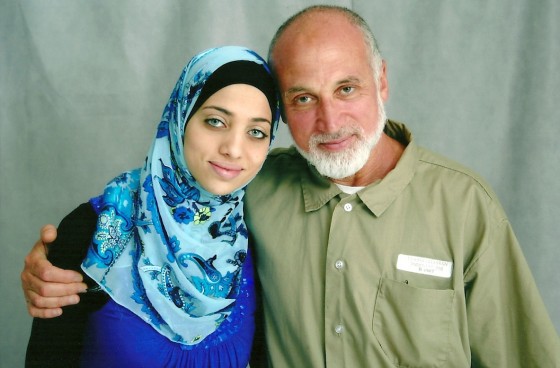
Holy Land Foundation Case Update
Hosts talk with Noor Elashi, Noor is the daughter of Holy Land Foundation prisoner Ghassan Elashi. Ghassan is currently being held in the Communications Management Unit in Marion, Illinois and has now had his visitations canceled. Noor says visitations have been cruelly obstructed by a Texas prison guard while at the prison in Seagoville Texas in October 2009. Noor’s brother Omar is 9 and has Down’s syndrome, during a visitation, Omar ran up to his father to give him a hug and the guard says “What Mr. Elashi, you think you’re an exception?” After the visit, the guard filed a complaint against Ghassan for not following instructions. The same prison guard during Thanksgiving that year, prevented his sons from entering the room during a visit. Ghassan called the guard evil and compared him to a guard at Abu Ghraib. The guard filed another complaint. After an internal investigation, Ghassan’s visitations were banned for 6 months. The visitation doesn’t usually apply when an inmate transfers to another prison, but when Ghassan was transferred to the CMU in Marion, the visitation ban was upheld. www.Freedomtogive.com
As many listeners may know, Holy Land Foundation was the largest Muslim charity in the United States, the Bush administration shut it down after the September 11th attacks, and arrested five people from the charity. During the trial, the prosecution used unrelated video of suicide bombers to emotionally sway the jury.
Noor Elashi:
- Book in progress: Eyes Like My Father, A Daughters Narrative of Displacement
- Father was sentenced to 65 years in prison for giving material support in the form of humanitarian aid to Zakat committees – Palestinian charities in the West Bank and Gaza, that prosecutors were alleging were fronts for Hamas.
- These are the very same Zakat committees that USAID, the Red Cross and UN NGOs were giving money to.
- The Holy Land Foundation, co-founded by Ghassan Elashi, was the largest charity in the US until the Bush Administration with an executive order shut it down 3 months after 9/11.
- The material support law is a very flawed law and singles out Muslim charities and with the recent upholding of the material support law by the Supreme Court, I feel that Americans are at risk.
- There were 2 trials (for Ghassan Elashi) the first in 2007 which looked at the Zakat committees. Jury deadlocked on most counts against the HLF. The prosecution showed the jury scenes of terrorism, buses being blown up expecting the jury to be prejudiced by seeing this and convict Ghassan Elashi, and they didn’t.
- In the second trial, the prosecutors were more aggressive, the defense attorneys, families and civil libertarians around the world were flabbergasted, when the jury delivered all guilty verdicts after 9 days of deliberation.
- Trials took place in Dallas, Texas. Ghassan Elashi, Noor’s father and the CEO of the Holy Land Foundation recieved a 65 year sentence. Other fund raiser reps were sentenced between 15 and 20 years.
- Ghassan Elashi currently in a CMU – Communications Management Unit in Marion, Ilinois – termed “little Guantanamos.”
- As far as visitations go, those in and of themselves are cruel and unusual punishment because you travel all that way and you can’t touch, there is a plexi-glass between you and its monitored live in Washington DC.
- Four of the defendants are being held in CMUs, 2 in Marion, Illinois and 2 in Terra Haute, Indiana.
- My father is hopeful and optimistic, he does yoga and pilates, reads the Quran.
- It was New York Senator Chuck Schumer who co-authored the anti-terrorism law in 1996 that strengthened the material support provision.
- I’m the eldest of 3 boys and 3 girls. It’s a double tragedy, these convictions that were made possible by “fear” in the courtroom and the 65 year sentence. Appeal: they have until August 3 to file briefs.
- Humanitarian Law Project Supreme Court Case upheld the material support provision.
- During both trials, the prosecutors brought in an anonymous Israeli intelligence officer who testified under a fake name. He said could smell Hamas.
- During the testimony, the court benches were cleared except for the family.
- Michael Ratner: After 9/11 they made it extremely dangerous to give money to Muslims anywhere in the world.
- Everybody is at risk at this point, even Jimmy Carter
Guest – Noor Elashi, the daughter of Holy Land Foundation prisoner Ghassan Elashi. She is a writer based in Dallas, Texas. After receiving a Bachelor’s degree in journalism from the University of North Texas, she worked for the Fort Worth Star-Telegram. In July 2008, she won the 3rd place Mayborn Literary Nonfiction Award for her manuscript titled “Displaced,” which she plans to expand into a memoir about the displacement of three generations of Palestinians: her grandmother, father, and herself. She can be reached at noorelashi@gmail.com.
——
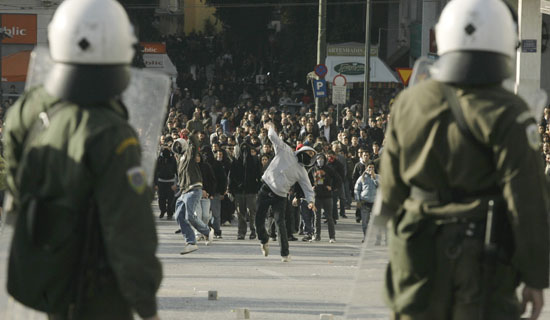
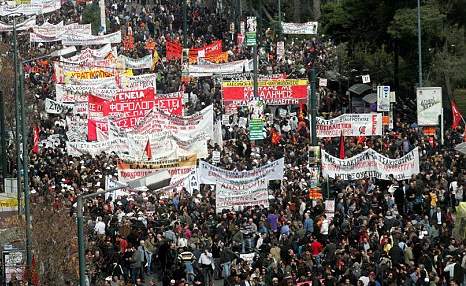
Austerity: Why and for Whom? – Rick Wolff
We are very pleased to have with us Professor Rick Wolff to update us on where we’re in this ongoing global capitalist crisis. Austerity has appeared in the titles of many recent articles on the global capitalist crisis. What is it? Rick Wolff writes in his article titled Austerity: Why and for Whom? the efforts to broaden the recovery beyond one year have failed and that failure has cost Washington trillions in borrowed funds from lenders. Those lenders now demand guarantees that those loans will be repaid to them with interest. The guaranteed demanded by lenders is “austerity.” To collect this austerity, the banks (lenders) want governments to raise taxes or cut government spending or both. Economic Recovery for the Very Few by Rick Wolff. An extreme burden imposed on the global economy. Rick asks, Why not collect austerity from tax exempt multinational corporations, churches and private institutions?
Professor Rick Wolff:
- Governments around the world borrowed enormous amounts of money, never seen before surge of borrowing. The urgency of the second impending crisis of capitalism, the second major collapse of capitalism in 75 years was so intense, the terror in the ranks of business was so complete, that nobody stopped to worry, just lend us lots of money, take toxic assets off our books and so on.
- Suddenly, the creditors who are lending to the governments are beginning to get nervous. They’ve been going to the governments and saying we don’t want to be stuck with a debt that your people might not pay back.
- Lenders: You either have to raise taxes on your people, save it and put it into a special account which will only be used to pay us interest on the principle or you cut your programs, your public services and put that into the same account.
- The name of the government’s response to the demand of its creditors is “austerity.” Imposing on society a severe regimen of rising taxes, or cut government spending to please and satisfy creditors.
- Yale, a multi-billion dollar corporation with billions of annual income, pays no taxes. Rather than increase the taxes of individual persons, why don’t we do what should have done long ago.
- Take a look at California, they’re laying thousands and thousands of state employees.
- No Economic Crisis: Annual world wealth report, the income of the top wealthiest people 2009 rose 17 percent.
- Banks are the buyers of government debt. The bankers produce a crisis, the government bails them out. The government borrows from the banks to bail them out. The bankers know there is popular opposition.
- French action against austerity: trade unions organizing general strike which will close everything in September in France. Will the pressure rise within US politicians to re-negotiate this debt?
- The state of Oregon, the democratic party controls both houses of legislature. To pay for the 700 million dollar gap over a 2 year period they raised taxes on business and wealthy people.
Guest – Richard D. Wolff is Professor of Economics Emeritus, University of Massachusetts, Amherst where he taught economics from 1973 to 2008. He is currently a Visiting Professor in the Graduate Program in International Affairs of the New School University, New York City. He also teaches classes regularly at the Brecht Forum in Manhattan.











